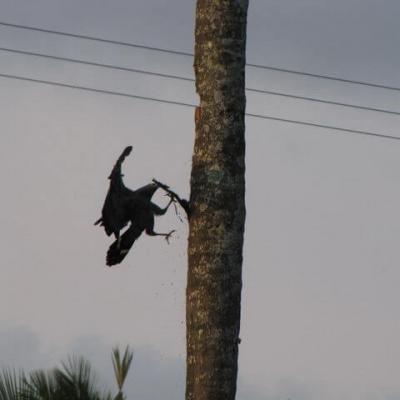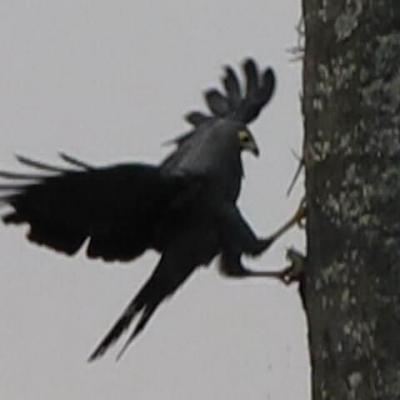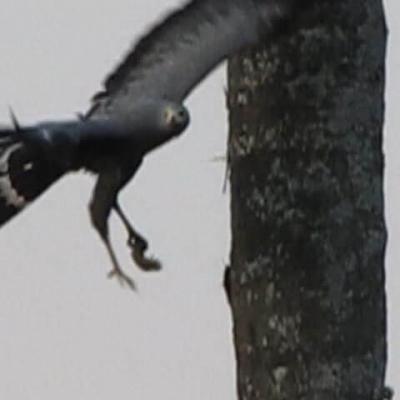On our recent trip to Southern Mozambique in March 2013 we had an excellent sighting of an African Harrier-hawk "digging" for its supper.
There was a 20m leafless coconut palm tree next to the road and the A H-H was busy digging and scratching the bark off the tree. It would hang on with one claw whilst flapping and then used its beak and other claw to rip off 20cm strips of bark, then scratch all the loose chips out and rip with its beak again. This went on for at least 20min! I videoed the last 16min until it flew away. We could not see what it eventually took out but it was white-ish and the size of a pork sausage. There was no tail or fur. Once home I isolated the last few frames and can now see that it was not a bird. I first thought that it may be a queen ant or queen bee but after reading my Insect Book it could be a grub from a Giant Long-horned Beetle! I checked that with Mike Picker (Author of Insects of South Africa) at UCT and asked him if he knew what insect would use a Palm tree as a "nest" at 10m from the ground.
His reply was: “I can make out that the larva is a scarab - very likely that of Oryctes boas (Rhino beetle) - which is known to burrow into the growing apex of palm trees, where the larvae develop. I guess the larvae then migrate to various parts of the trunk as they mature. The larvae are always bigger than the 44 mm long adults - see 208.2 of Field Guide to Insects of SA. Regards, Mike”
Interesting stuff. I was partially right as I had another beetle, Long-horned Beetle in mind. I did see examples of dead Rhino Beetle at a shop that we stopped at. We were very privileged to see this whole episode.



